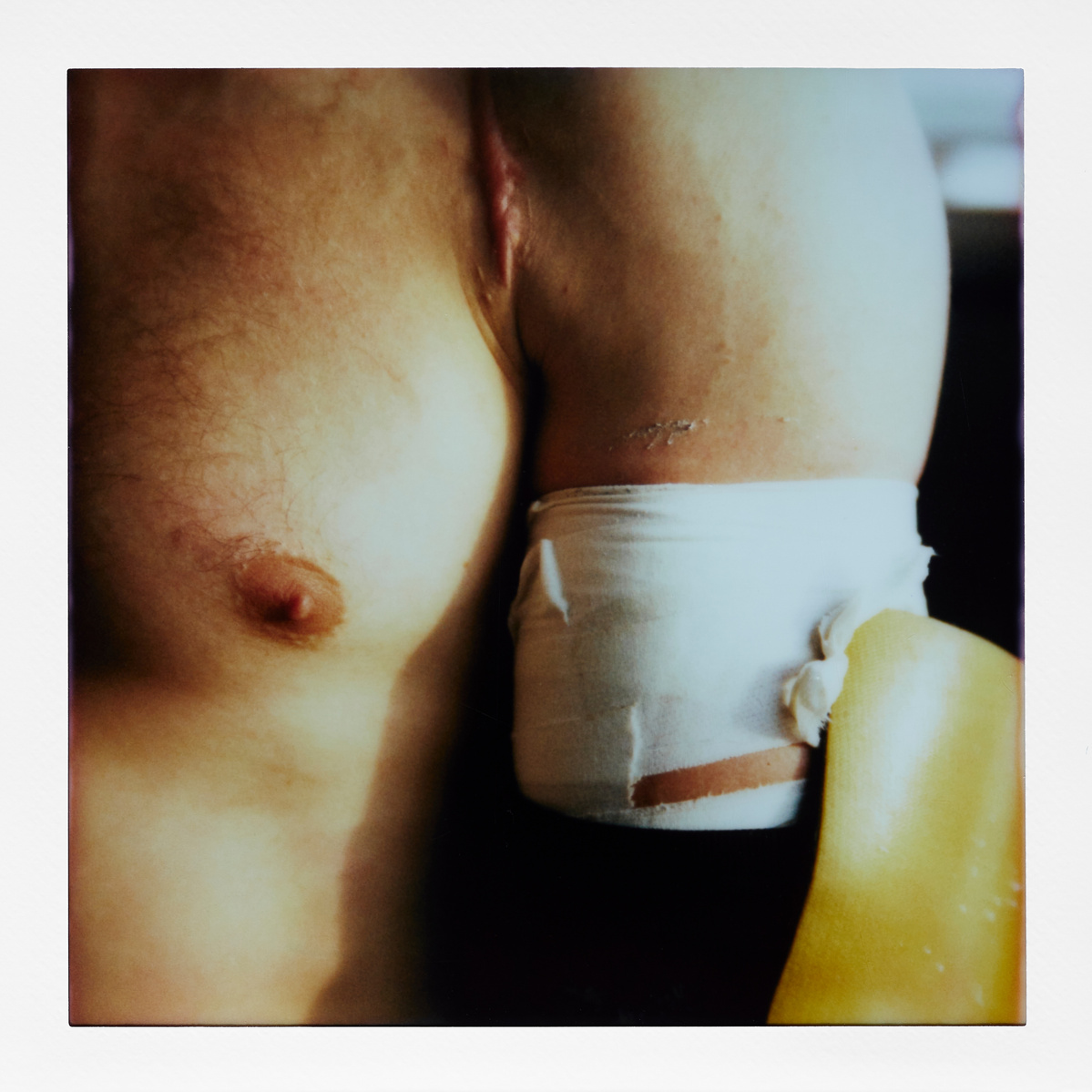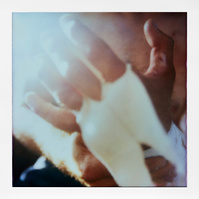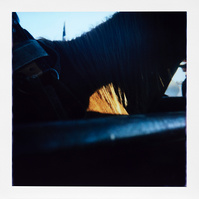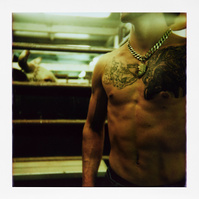Selections from 'Rodeo,' 2023-Ongoing, Instant Photography
Make me an angel
That flies from Montgomery
Make me a poster
Of an old rodeo
Just give me one thing
That I can hold on to
To believe in this livin'
Is just a hard way to go.
- John Prine, "Angel from Montgomery"
The word “Rodeo” is Spanish for the rounding up and branding of cattle, a set of practices that developed in Spain and the colonies of “New Spain” in the 16th and 17th centuries. The “Wild West Show”, a genre of vaudeville stage production that mythologized the colonization of the American West, sprung to life in the mid-19th century. Rodeo as we know it was born on July, 4th, 1882, when showman Buffalo Bill Cody merged the competitive staging of real life ranch tasks with a “Wild West” theatrical atmosphere on a patch of dirt in North Platte, Nebraska. American Rodeo can therefore be defined as settler colonial public theater that symbolizes in competitive performance the daily rituals of a mythologized ranch life. In many events there is an ever-present risk of significant physical harm. In this sense cowboy, and therefore American, masculinity is not only on display - in ornament, attire and tattoo - but re-enacted in a primal scene.
In his essay “Deep Play: Notes on the Balinese Cockfight”, anthropologist Clifford Geertz expands at length on the cockfight as an obsessive set of rituals, including the “deep play,” a wager one cannot afford yet must make in order to satisfy the symbolic requirements of one’s masculinity. Rodeo athletes, poorly paid young men on the hunt for glory, wager their bodies on behalf of a social world that romanticizes violence as its condition of possibility. Today, 97% of cattle are raised in feedlots. Uncontrolled monopolization in the industry squeezes out small proprietors, viciously exploits immigrant labor, and contributes to the collapse of income and identity in working class America. The range is a relic, as are the social relations of production that birthed the cowboy; and so they perform, lives on the line, lambs on the altar of a frontier suspended in time.





























